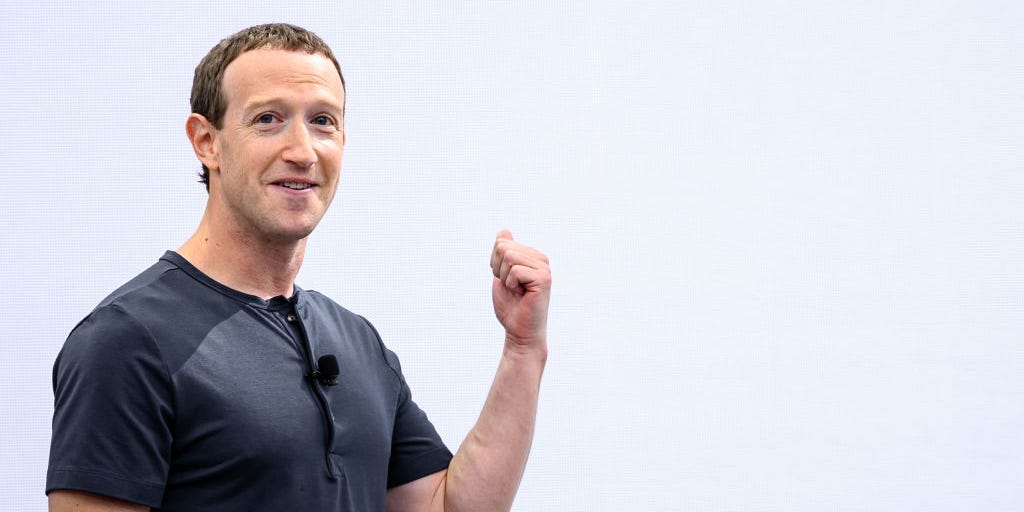Facebook, as it was then known, thought about paying users of its apps directly for the trove of data it collected and leveraged to maintain its place as one of the largest and most successful advertising platforms in history.
The company, now called Meta, admitted to having “considered—and rejected” at an unspecified time “internal Meta proposals about compensating users” of its apps, which include WhatsApp and Instagram, according to a heavily redacted filing in a lawsuit.
A group of advertisers brought the case in 2020, accusing Meta of anticompetitive actions that gave it monopoly power in the market for social media ads and allowed it to keep prices artificially high. Unsealed documents in the case have shown the lengths Meta executives like CEO Mark Zuckerberg, COO Javier Olivan, and chief information security officer Guy Rosen went to obtain data on and “clone” rivals. The case is set to go to trial this summer.
Meta spoke of its one-time consideration of paying users in a motion asking the judge overseeing the case to throw out testimony from an expert witness for the plaintiffs. The witness is Nicholas Economides, an economist and New York University professor focused on network economics.
Meta took issue with several parts of Economides’ testimony, which remains under seal and had many specific references redacted from Meta’s filing. In his testimony, Economides valued individual Facebook user data at least $5 a month per user, according to Meta’s summation of it.
Part of what the advertiser plaintiffs are arguing in the case is that had Meta not engaged in various actions to thwart rivals like Snapchat and Google+, it would have eventually needed to pay users for their data “in perpetuity” to remain competitive.
According to Meta, Economides’ expert research and testimony claim that, if there was more competition, Meta users could effectively charge $5 a month for their data instead of giving it away for free in exchange for access to its apps. In the present day, that would mean Meta paying out tens of billions each month for user data, as Zuckerberg said in fourth-quarter earnings that over 3.1 billion people use at least one Meta app each day.
Since Meta has never paid for user data and now dominates the social media ads market, Economides estimated that the advertiser plaintiffs in this case are owed $50 billion in damages. Economides has written publicly on his stance that the online dominance of Facebook and Google has harmed users and competition and that users are effectively forced to give up their data for free. Meta disagreed and told the court that Economides’ testimony was effectively “junk science” with “no real-world support” and should be thrown out.
In a separate motion filed last week, Meta asked the court to throw the case out entirely before it gets to trial. The company argued that the entire case was filed as “a tag-along to the FTC’s belated challenge to the acquisitions of Instagram and WhatsApp,” and that Economides’ claims are “implausible” — although most of his specific claims are redacted from that motion as well.
“No firm like Meta, in any market, has paid all its users as a competitive response—ever,” lawyers for Meta wrote. “This case, in any of its forms, is legally infirm.”
A spokesperson for Meta and a representative of the plaintiffs did not respond to emails seeking comment.
Are you a Meta employee or someone with a tip or insight to share? Contact Kali Hays at khays@businessinsider.com or on secure messaging app Signal at 949-280-0267. Reach out using a non-work device.




